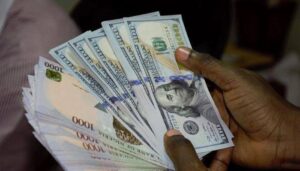Key Insights
- Inflation in Nigeria is on the rise, and projected to potentially reach 30% by year-end.
- Bank of America economist warns of a possible 700 basis points increase in interest rates to control inflation.
- Rising inflation poses a threat to everyday Nigerians, making goods and services more expensive.
Inflation in Nigeria has become a growing concern, prompting the possibility of strong measures to curb it.
Tatonga Rusike, an economist at Bank of America, warns that interest rates may increase by a significant 700 basis points before the year concludes. The aim is to address the surging cost of living, driven by higher fuel prices and a weakened currency.
What is the current inflation rate in Nigeria?
As of May, inflation in Nigeria stands at a worrying 22.4%, but Rusike predicts it could escalate to 30% by the end of the year. To combat this, the central bank may opt to raise interest rates. In fact, the bank had already hiked borrowing costs by 700 basis points last year in response to the rising prices of goods and services.
Why does this matter? Well, high inflation adversely affects everyday Nigerians by making everything more expensive. Therefore, it is crucial for the central bank to take swift action.
Rusike emphasizes that failure to act decisively could pose challenges in attracting foreign investors, who play a crucial role in stabilizing the country’s currency, the naira.

Speaking of the naira, Bank of America anticipates a potential strengthening in the future. They forecast that one US dollar might be valued at only 680 naira by early 2024.
This projection brings positive news for Nigerians, as it implies that their currency would have more purchasing power.
Additionally, recent government decisions have garnered investor approval, raising the possibility of an imminent improvement in Nigeria’s credit rating. This would significantly enhance the country’s financial reputation and potentially attract more investments.
However, Bank of America cautions against complacency on the part of the government. It is crucial to continue working towards enhancing policies and implementing reforms to secure a better credit rating.
In summary, Nigeria faces a challenging battle against rising inflation, but there is hope for improvement. By implementing measures such as raising interest rates and adopting effective policies, the country can stabilize its economy and improve the quality of life for its citizens.
Markets Xplora will continue to monitor developments in the coming months to see how the situation unfolds.
Think we missed something? Let us know in the comments section.



[…] persistent rate hikes by central banks, coupled with a lack of immediate policy pivots, may exert continued pressure on global growth and […]
[…] on July 26, a week prior to the August monetary policy meeting. The RBA’s mandate to target inflation between 2-3% on average over time is closely tied to this figure, rather than the monthly CPI […]
[…] Read also: Tackling Inflation in Nigeria: Economist Warns of Potential Interest Rate Hike […]
[…] rise in inflation was attributed by the Central Bank to high domestic demand, pressure due to budget spending, […]
Thanks for your write-up.
[…] latest economic data showed that inflation in Nigeria rose to 22.7% in June. Nigerian economists expect it to reach 30% […]
[…] Read also! Tackling Inflation in Nigeria: Economist Warns of Potential Interest Rate Hike […]
[…] promoting its central bank digital currency (CBDC), known as eNaira, Nigeria remains cautious about the crypto industry. The adoption rates of eNaira have been below […]